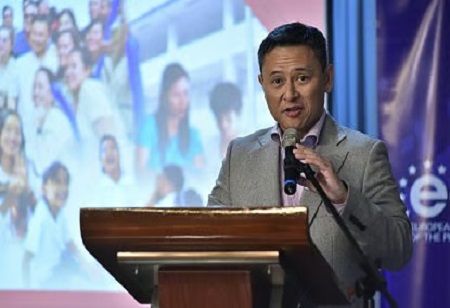- The Senate has approved an unprecedented ₱85.41-billion allocation for basic education facilities in the 2026 budget—more than triple the current funding aimed at fast-tracking the construction of over 24,000 classrooms and modernizing public school infrastructure nationwide.
- The expanded budget provides DepEd with flexible implementation options, including LGU partnerships, CSO collaborations, PPPs, and selective DPWH involvement, allowing faster and more efficient delivery of classrooms and learning spaces.
- With major investments in new classrooms, repairs, furniture, library hubs, tech-voc labs, and medium-rise school buildings, the package is seen as a transformative step aligned with President Marcos Jr.’s learner-centered agenda and Secretary Sonny Angara’s reform-driven vision.
The Department of Education (DepEd) has welcomed the Senate’s approval of a record-breaking ₱85.41-billion allocation for basic education facilities under the proposed 2026 national budget, describing it as a transformative investment that will accelerate the country’s long-standing efforts to modernize public school infrastructure.
The unprecedented increase more than triple the current ₱28.06-billion budget is expected to fast-track the construction of over 24,000 new classrooms nationwide and significantly boost the government’s capacity to address perennial shortages caused by rising enrollments, ageing school buildings, and recurring calamity-related damage.
In a statement released on Friday, Nov. 28, DepEd said the Senate’s endorsement reflects a decisive show of confidence in President Ferdinand Marcos Jr.’s vision for a learner-centered, future-ready education system and in Education Secretary Sonny Angara’s push for long-term structural reforms. Angara emphasized that the larger budget demonstrates a renewed national commitment to investing in young Filipinos, noting that efficient funding paired with institutional reforms will enable faster, more cost-effective delivery of school infrastructure. “Malinaw ang mensahe na handang tumaya ang pamahalaan para sa kabataan”, he said, reiterating that the education sector is ready to scale up construction once resources are secured.
A notable feature of the Senate-approved budget is the broadened flexibility granted to DepEd in classroom construction. Instead of relying solely on traditional channels, the Senate endorsed diverse modalities such as partnerships with local government units, collaborations with civil society organizations, leasing of learning spaces, public–private partnership schemes, and selective implementation by the Department of Public Works and Highways. Lawmakers said these varied pathways will allow DepEd to identify the most efficient, scalable model each year, helping address a problem they likened to a 'bucket we keep filling but one that keeps leaking' due to classrooms lost annually from unsafe structures and disaster impact.
Senators Bam Aquino and Win Gatchalian also clarified that DepEd’s overall performance should no longer be judged solely based on school building projects implemented by the DPWH, pointing out that such constraints previously distorted public perception of budget utilization. Gatchalian highlighted DepEd’s progress in resolving procurement issues in textbooks, furniture, and vouchers improvements that contributed to legislative confidence in increasing the department’s funding.
Also Read: DepEd Recovers P65 Million from Senior High School Voucher Program Amid Irregularities
The Senate-endorsed package allocates ₱65.98 billion for new classrooms, replacements, tech-voc laboratories, and water and sanitation facilities, targeting 24,527 new classrooms complete with furniture and benefiting more than one million learners. A further ₱7.73 billion will support repairs for nearly 12,000 classrooms, while ₱3.69 billion is allotted for 25,451 new or replacement furniture sets. Additional investments include the ₱1-billion Library Hubs Program, the expansion of Inclusive Learning Resource Centers, and ₱2 billion for Medium-Rise School Buildings to be built in densely populated communities.
Angara said these investments will enable DepEd to 'build faster, repair smarter, and deliver better'.As the national budget proceeds to the bicameral conference committee, DepEd expressed hope that the Senate version viewed as a historic step toward closing the classroom gap will be carried into the final General Appropriations Act, aligning school infrastructure with the administration’s broader education agenda and the evolving needs of Filipino learners.

